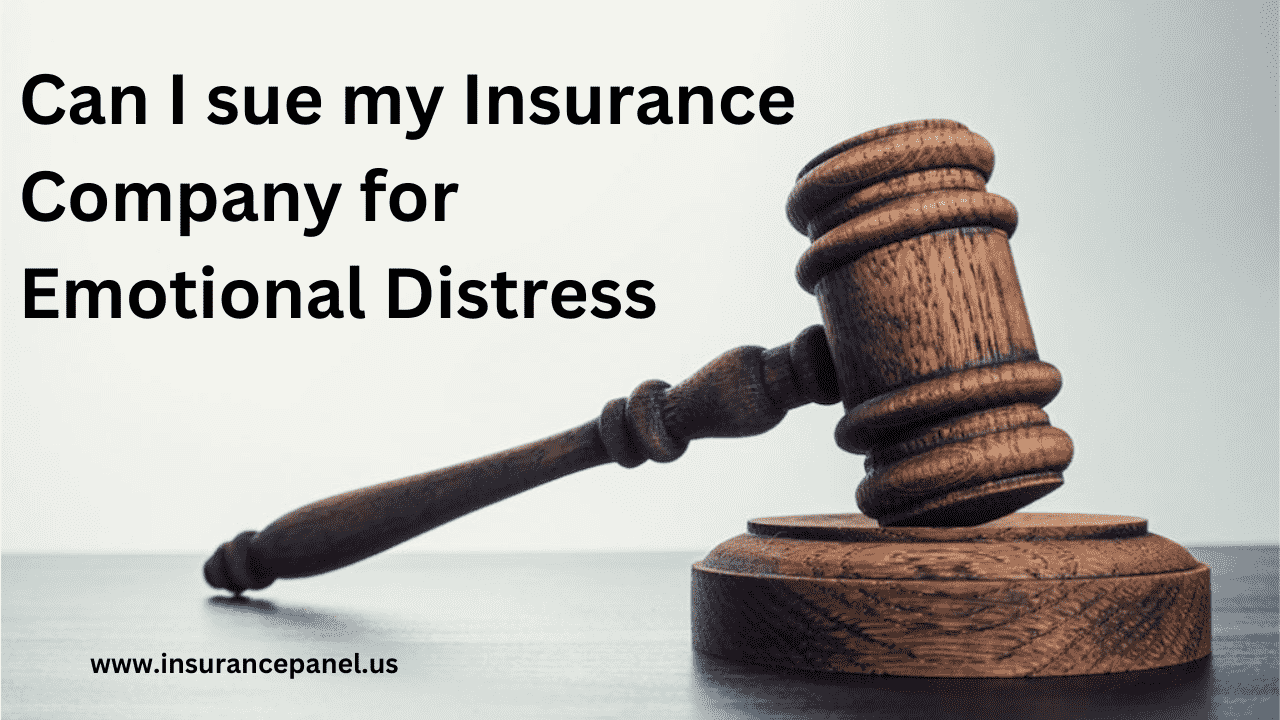
Can I sue my insurance company for emotional distress? Understanding Your Rights and Legal Avenues
Due to an accident, natural disaster, or personal loss, individuals continue to return to their insurance companies as they look for money and focus on financing. The insurance companies are like security officers and must be equipped with the necessary experience. But what followed the company when it was entrusted by Collaborative to protect itself? Also, just beware of the emotional fear that an insurance company may experiment with during a dispute with your insurance company. This is an important task: can I sue my insurance company for emotional distress?
The Legal Landscape of Suing for Emotional Distress
At the heart of this demand is the term “bad faith.” An insurance company acts in bad faith when it fails to give, denies a claim, delays payment, or fails to investigate a claim properly. Claimants may suffer emotional and financial hardship as a result of this bad-faith behavior. In addition to seeking justice for financial conduct, suing an insurance company for emotional distress aims to hold the company responsible for the psychological effects of its decisions.
When will I sue my insurance company for emotional distress?
A case of this kind revolves around the idea of “bad faith.” An insurance company acts in bad faith when it rejects a claim, makes late payments, or fails to look over a claim properly.
So, these bad-faith behaviors can cause claimants not only great financial strain but also torture and heartache. Suing an insurance company for emotional distress in the United States is not only about seeking justice for financial lawlessness but also about holding the insurer accountable for the psychological impact of their actions.
Understand and sue your insurance company for bad faith.
A bad faith claim arises when an insurer does not act on its obligation and fails to manage claims honestly and fairly. The term bad faith can include actions like denying claims or prolonging the claims process longer than necessary. When an insurance company acts in the right way, it not only violates its agreement with the policyholder but also causes additional pain, suffering, or emotional distress.
Suing an Insurance Company for Emotional Distress: The Process
Before pursuing a bad faith case against an insurance company, you must be fully aware of all local rules and ordinances. A personal injury lawyer or an attorney with experience in insurance issues is usually the first to assist with the procedure. These legal experts can assess whether an insurance company’s acts indeed qualify as bad faith and whether the emotional distress suffered by the claimant is severe enough to justify payment.
Economic and non-economic damages
When suing an insurance company for emotional distress, claimants may find two types of damages: one economic and the other non-economic. Economic damages are touchable losses, such as medical bills resulting from physical manifestations of stress and the cost of therapy sessions. However, the mental distress, pain, and suffering caused by the insurance company’s bad faith acts are covered by non-economic damages. These are more subjective and might be quite difficult to measure.
The Role of a Personal Injury Attorney
A personal injury attorney plays an important role in navigating the difficulties of a bad-faith insurance claim. They can help in gathering evidence in the form of medical records, documentation of claims that have been denied, and correspondence with the insurance company. Moreover, they are also able to explain the connection between the claimant’s financial and psychological distress and the insurer’s bad-faith actions.
Case studies and precedents
The way in which bad-faith litigation turns out is significantly influenced by previous legal decisions. Courts are diverse in their interest in claims of emotional distress caused by insurance companies’ actions. In these types of cases, success frequently depends on proving a direct connection between the insurer’s actions and the claimant’s psychological suffering. Expert testimony and thorough documentation can be very helpful in proving this relationship.
Conclusion: Empowerment Through Legal Action
Suing an insurance company for negligence is a path filled with legal complexities and emotional confusion. It also serves as a tool for making insurers accountable for their duties to policyholders. With the right valid representation and a good understanding of the complexities of bad faith claims, it is feasible to secure not just financial compensation but also a sense of justice and closure.
In the end, the final solution to your question is: can you sue an insurance company? is deeply personal and depends on numerous factors, including the specifics of the bad faith actions and the extent of the emotional and economic damages suffered. Consulting with a knowledgeable personal injury lawyer can provide clarity and direction, helping you navigate this challenging journey towards recovery and restitution.